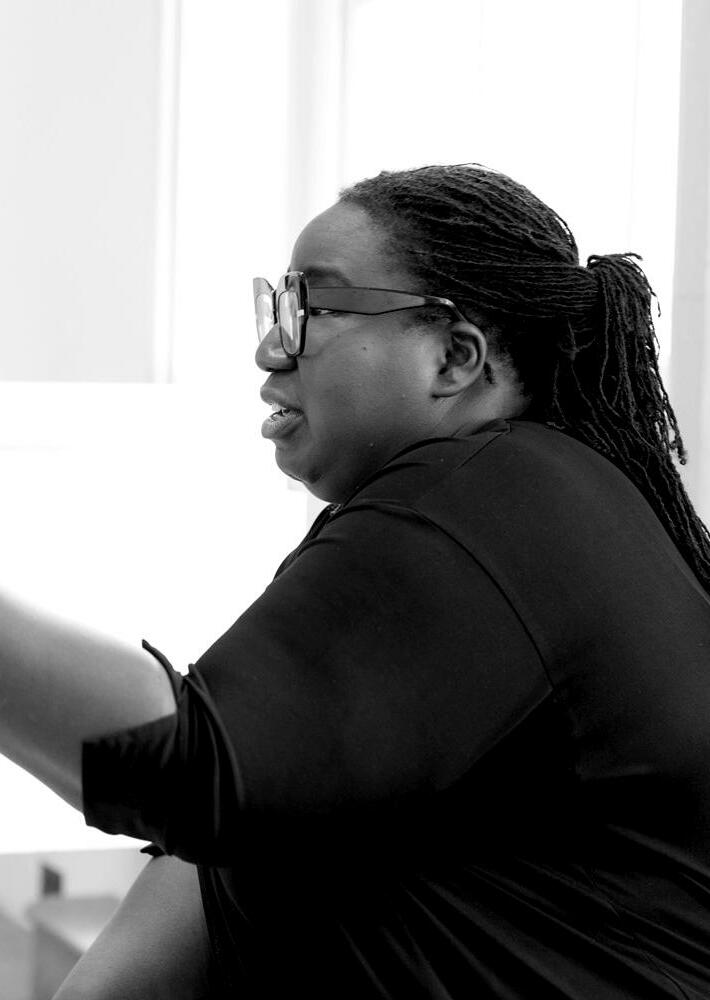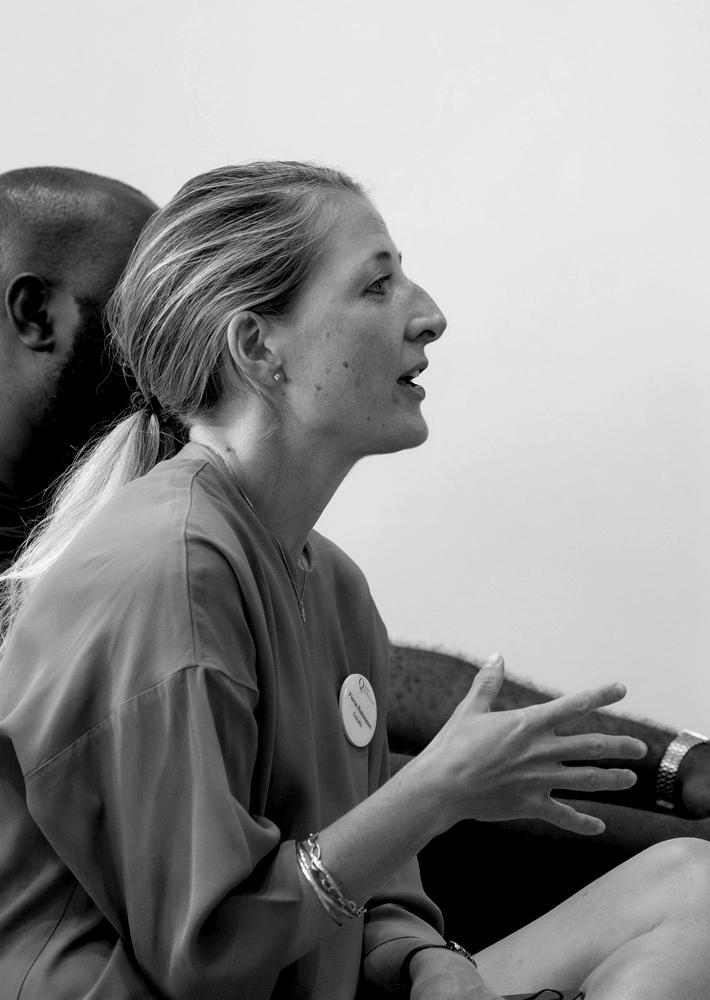
3 minute read
Chapter Eight The Finale
by One Question
“The police are a reflection of society, they’re taken from society. So if you’ve got sexists, racists, criminals, there needs to be an honest conversation with everyone – your police force is never going to be perfect. All we can do is try our best to identify the ones that are racist, sexist, homophobic, whatever, and deal with those.” Steven Keogh
“If you want to talk about advertising, there’s no one on earth that can ever tell them anything positive about the police, because the biggest advert is the actions that came in their lives.” Kay Rufai
Advertisement
As Keough explained, officers are taught to follow protocol – but education about the importance of treating members of the public in a way that makes their dignity a priority will go a lot further to repair police-community relations than reeling off legal rights. Those relationships have frayed over generations, with each incident compounding existing bad feeling; if advertising is about creating associations, then like their colleagues in the West Midlands, the Met police must contend with the negative ones that are already entrenched in public consciousness.
By entreating officers to respond to stories of young people, Rufai’s project opened a dialogue between two groups of people who had otherwise co-existed in a hierarchy; while metrics like violence or drug related crimes weren’t impacted, the artist’s residency made other immeasurably valuable ripples. Placing narrative at the heart of his intervention, Rufai joined an existing conversation rather than shouting over it; instead of papering over old, ugly stories, there is something disarmingly simple about writing them anew.
The Finale

Simon Gunning Campaign Against Living Miserably James Golding The Connor Brothers

In this last conversation, Simon Gunning and James Golding applied the day’s central question to one of the most high-stakes and widely relevant topics of all – mental health.
“I don’t really know the answer to the question, but I think it is possibly as simple as reducing the stigma, taking the shame away […] I suppose that what we have to do is educate ourselves to be aware and to look inside ourselves, but also to be able to look inside other people, to identify when somebody is struggling and to create a space where that person can talk about that openly.” James Golding
Half of artist duo The Connor Brothers, Golding’s collaborative practice emerged when his now creative partner Mike Snelle had a breakdown and moved in with Golding. As the pair found their rhythm, they began making art at Golding’s kitchen table – to understand what had happened to Snelle, to make sense of Golding’s own history of addiction and mental illness, but also to make each other laugh.
As the ad hoc project grew into an artistic practice, the pair took on their professional pseudonyms; the freedom afforded by the anonymity allowed Snelle and Golding to tackle topics that might otherwise have felt too exposing. In conversation


with Golding, Simon Gunning spoke openly about the taboos that make those subjects so difficult to address head-on.
When it comes to education’s role in unpicking this tightest of knots, the panel agreed that, while imperative, the relationship of simple awareness to better outcomes wasn’t linear: although the last 10 years have seen a huge increase in the frequency and reach of conversations about mental health, they haven’t translated to fewer crises or less suffering.
Knowing about conditions like depression and anxiety is not enough to stem their flow; people need to be informed about ways to address them – medication, therapy – but most crucially, they need to be able to access those tools. Private therapy is out of reach for a huge number of people – but with NHS services increasingly stretched, chronic underfunding and the ongoing ramifications of the pandemic, state support inevitably fails to provide for everyone who needs it.
What’s more, environmental factors impact wellbeing on a national scale: already laid low by the pandemic and the social isolation of its stop-start lockdowns, “We’re so bad at talking about death as a society that [maybe it’s not surprising that] suicide makes us squeamish, even attempted suicide or someone having a terrible, terrible life – surely the reaction should just be like, unmitigated sympathy, [but we still wince], and it’s the same with psychosis and addiction.” Simon Gunning









